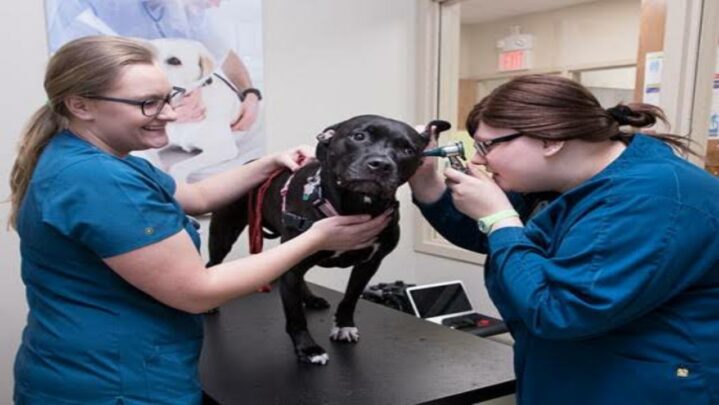In private clinics, animal hospitals, and research centers, veterinary technicians aid veterinarians in diagnosing and treating animals. Testing blood, urine, stool, and other samples, administering vaccines and other medications under the direction of a veterinarian, managing anesthesia or rather getting ready animals for surgery, and any other task intended to guide veterinarians with the diagnosis and services of animals are all part of the job.
Veterinary technicians, as opposed to veterinary assistants, require specific training and must be licensed. They are unable to perform tests or give drugs, among other restrictions.
The capacity to do the following duties is typically required for this position:
• Provide assistance to veterinarians.
• Keep an eye on your vital indicators.
• Collect samples of blood, feces, and other bodily fluids.
• Examine blood, feces, and other bodily fluids.
• Have x-rays taken.
• Get the animals ready for surgery.
• Dental operations are performed.
• First aid in an emergency.
• Keep animals restrained throughout examinations.
• Apply anesthetic to the patient.
• Administer medications, immunizations, and treatments that a veterinarian has prescribed.
Veterinary technicians provide services to veterinarians in the same way that laboratory technicians and nurses provide services to doctors. Veterinary technicians help with animal treatment by gathering medical information from their owners and assisting with the administration of therapies or drugs. Blood and other samples are also tested as needed.
Depending on where a veterinary technician works, their tasks may differ. Small private practices that serve family pets, for example, will likely spend more time supporting doctors with treatments and interacting with pet owners.
Those who work in research laboratories, on the other hand, may spend more time completing tests in a lab setting.
Keep reading successyeti.com
Also Read: Quotes From Karl Lagerfeld To See The Art In Life





